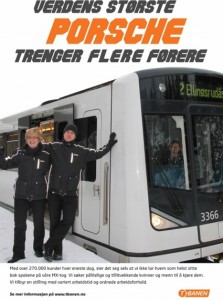Veikroer har låg status. Dette er eit problem for selskapet Marché, som driv 11 veikroer på Austlandet. For å auke statusen til selskapet og veikroene gjer dei akkurat det status-teori seier: Assosierer seg med andre som har høgre status. Marche har nyleg valt selskapet Nores som innkjøpar av mat, og økonomisjefen til Marche uttalar til Handelsbladet FK at
– Hos Nores er kvaliteten i fokus, noe som er svært viktig for oss. Vi føler også at vi kan identifisere oss med den eksisterende medlemsmassen i Nores, som for eksempel De Historiske Hoteller og Restauranter, Bølgen og Moi og Hotel Continental
Spørsmålet er om Bølgen og Moi og Hotel Continental kan identifisere seg med Marché! For Marche er det også viktig å ta avstand frå andre restaurantar med låg status, og i same artikkel uttalar driftssjefen at:
– Vi har helt andre behov enn gatekjøkken og kantiner, og ser det som en stor fordel å være i selskap med andre med samme fokus på ferske råvarer og sunn mat
Marche har forstått at dei må gjere ting for å auke statusen til veikroene, og kommuniserer dette på ei god måte. Og sjølvsagt: Dei brukar ikkje ordet veikro, men restaurant.
